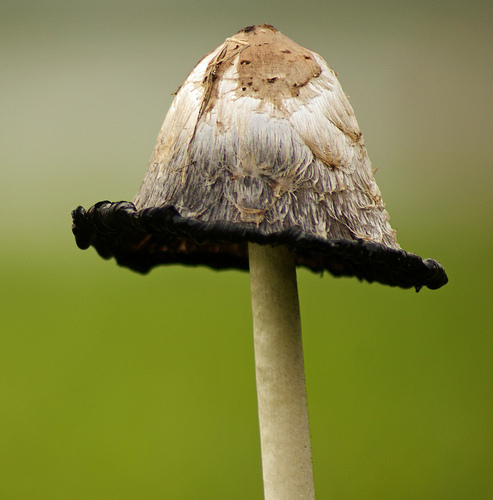If you’ve never read Diana Gabaldon’s Outlander series, you’ve also not likely read The Outlandish Companion, which was published following the fourth book in the series, The Drums of Autumn. It mostly serves as an encyclopedia and catch-all reference for the series, but Diana Gabaldon does discuss writing quite a bit, and one of my favorite parts of the book discusses characterization. I’ve never run across a better description of characters than Gabaldon’s. She classifies characters into three groups: onions, hard nuts, and mushrooms.
Onions are your main characters that must be built layer by layer and have depth. They’re purposeful and planned. Hard nuts are characters that need to exist for the sake of the plot, but are hard to write. They don’t cooperate. Their personalities are difficult to capture. They’re tough. Mushrooms are my favorites. They’re these characters that just pop into the story. They can threaten to take over if you’re not careful. Most of the time, they’re minor characters. The idea that fully formed characters could just walk into a story without the author knowing who they are or having planned for them was absolutely ludicrous to me—until I started writing.
I’ve written two novels and am working on a third for NaNoWriMo. In my first novel, A Question of Honor, these mushrooms walked into my story a few chapters in. They were traveling minstrels. One of them was a pretty important person, but he was hiding. They were totally awesome people, and I loved them. In my second novel, Quicksand, which hasn’t been published, my mushrooms were the first cousin and his son of my protagonist’s father. Up until today, I didn’t have any mushrooms in my current book, which remains without title for the moment. One showed up today. Her name is Laura, and I love her. I don’t know what role she’ll play later, but she just showed up, and I’ll be interested to see what she does.
I was wondering if you could think of any mushrooms in books you’ve read. If I had to guess, I’d say that Marion and Count Fosco from The Woman in White were mushrooms. I would also guess that Stephen Black from Jonathan Strange & Mr. Norrell was a mushroom. Shug Avery in The Color Purple seems to have a tinge of the mushroom about her, too. Though J.R.R. Tolkien doesn’t use the term mushroom to describe him, his character Aragorn seems to have a similar background: In a letter to W.H. Auden, Tolkien confessed that “Strider sitting in a corner at the inn was a shock, and I had no more idea who he was than Frodo [did]” (Tolkien Online, The Return of the Shadow). Tolkien observed of his writing that
One writes such a story not out of the leaves of trees still to be observed, nor by means of botany and soil-science; but it grows like a seed in the dark out of the leaf-mould of the mind: out of all that has been seen or thought or read, that has long ago been forgotten, descending into the deeps. (“How the Tale Grew in the Telling: The Unexpected Sprouting of The Lord of the Rings“)
Sort of like mushrooms.
photo credit: Matt Brittaine


